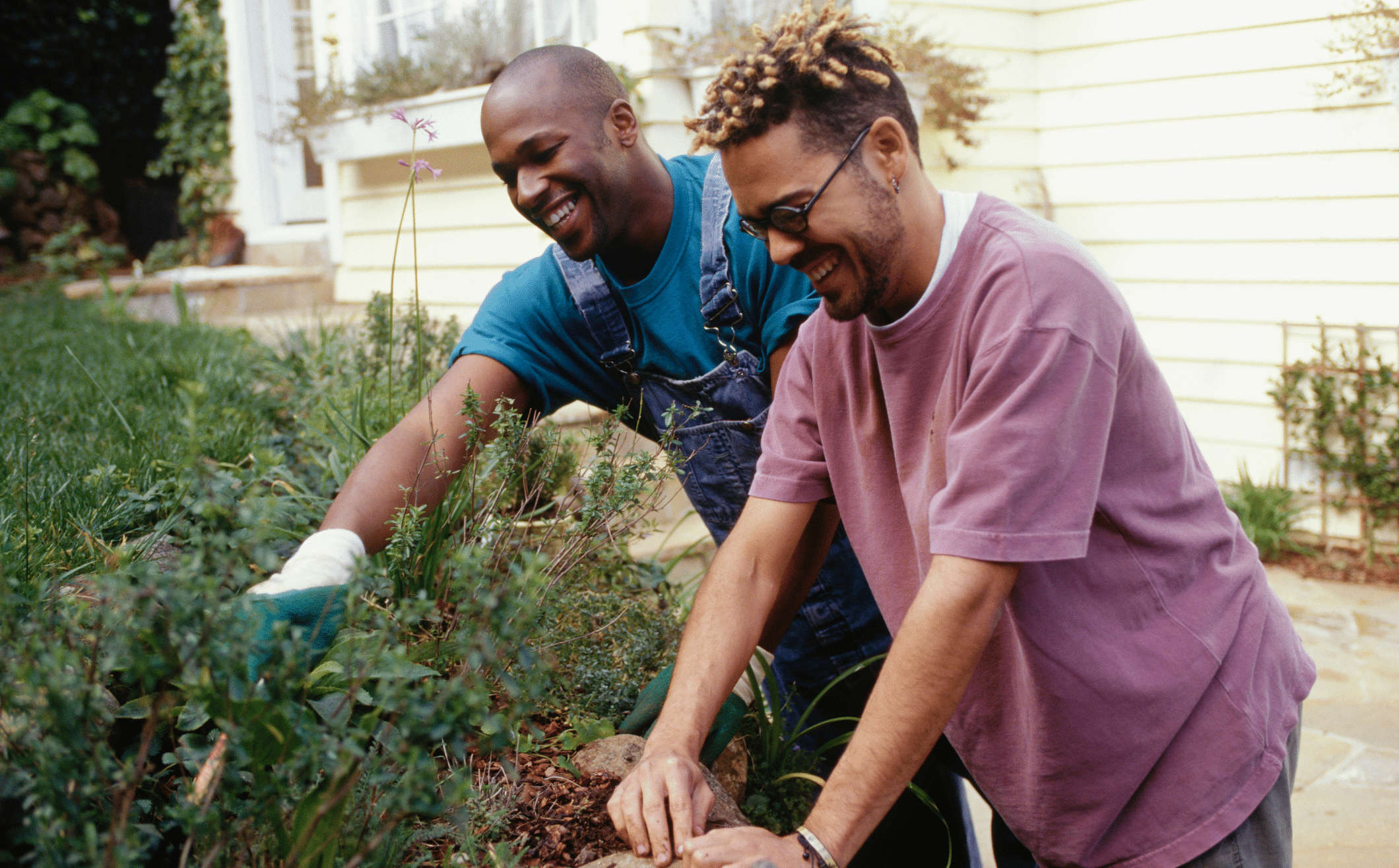Friendship is essential in intimacy. Because friendship, if you think about it, is the building block of our lives.
We get to know people and become good friends with someone, whether it’s in a romantic relationship or even a platonic friendship, by establishing a sense of intimacy.
Let’s start at the beginning, how do we build that emotional intimacy? When you meet someone and like them, no matter whether it’s romantic or platonic, you want to spend time with that person. They are interesting! You get to know them over time.
First, you’re talking about surface topics. Then you start to share a little bit more about yourself and then the other person shares a little bit more.
Gradually, you build on that until you become really close friends. The reason you’re close is because you shared personal parts of yourself. You let yourself be vulnerable!
You opened up to them; that’s where the intimacy comes from–that sense of trust. You are comfortable with them. That’s critically important, especially in romantic relationships.
You need that friendship to build upon other aspects of your relationship. From that friendship can come deeper connections. You can physically connect with anybody. But if you really want a deeper, more meaningful relationship that is completely satisfying, then you want that intimate piece, that emotional intimacy.
Friendship and Intimacy…the sound relationship house
The Gottmans developed a sound relationship house model, clearly outlining what a relationship needs to thrive. The foundation, the ground floor, is all about friendship.
Based on well- established research, we know it’s critical that we have a strong connection with our partner both physically and emotionally. Friendship and intimacy are likened by Gottman to an emotional bank account.
One of the friendship levels is all about turning towards the other – bids of connection. Another is a sense of shared fondness and admiration. When we have those fun times with our partner, when we’re turning towards our partner, wanting engagement, wanting to do things with them, that’s a deposit in the emotional bank account.
The saying save your pennies for a rainy day means putting money aside in a savings account for emergencies like if the car breaks down. We’ve got money to cover it.
In relationships there are natural ups and downs. If we turn towards our partner to make those emotional deposits in our emotional savings account, those extra deposits can be drawn on during those down times.
That dip may not be quite as deep or won’t hurt quite as badly if we’ve got the “funds” to cover it. It also means that we want to work even harder to come out of it. We know that there is fun, that there is the friendship and intimacy with our partner at the other side of these harder times.
Signs of trouble…friendship and intimacy require a stable give and take
What might these relationship “dips” or hard times look like for you?
Are you spending more time apart than together lately? Or does the time that you do spend together feel very routine, in a way that feels scripted or rote? Are you sharing space with someone but you’re feeling very parallel or like a roommate?
When you lose novelty or a sense of curiosity together, it’s time to think about what’s missing. You do not want to feel like you are spending parallel time with your partner and feel disconnected. Being in the same room with your partner and each of you looking at your phone instead of each other is not fostering that sense of emotional intimacy.
Think of your relationship as a three-legged stool. One leg of the stool is you. A second leg is your partner. And the third leg is your relationship. It’s important that you have a sense of self as an individual and within your relationship.
You want to make sure you have a balance between individual interests, friendships, hobbies and the activities that you do together. If you’re spending all of your time together and having no individual time, the individual leg of the stool is “shorter” than the relationship leg.
This causes your stool to become unstable. On the other hand, if each of you is so independent and spend little time together, the relationship leg is going to be “short” and cause a wobble.
The “ungolden” rule about marriage and friendship
Many of us are familiar with “The Golden Rule:” do unto others as you want them to do unto you. This makes sense–you want to treat people nicely so they’ll treat you nicely. When it comes to romantic relationships, I ask the couples that I work with to consider the “un-golden rule.”
The un-golden rule means that you may tend to treat your partner the way you would want to be treated but your partner does not seem to appreciate it.
You may be putting forth all this effort and thinking, “I’m doing all these things for my partner and they are going to think I’m the best thing ever.”
But your partner is thinking, “I wish he or she would just do ____ or they would do ____.” You both become frustrated because neither of you is getting your needs met. You are not speaking each other’s love language…and you might slip into an emotional gridlock.
We all have different ways that make us feel loved. And we’re most comfortable speaking our own language. We do what’s most comfortable for us and we’re finding that it doesn’t always satisfy our partner.
It’s important to understand what your partner’s love language is. And then you have to be able to learn to speak that language. Ask your partner, “What do you need to feel loved?” or “What can I do to make you feel special?” I recommend reading the book The Five Love Languages by Gary Chapman. If you want to improve your marriage and friendship, It’s a great place to start.
Tend to your marital friendship with care
Some of the couples that I work with are helped with imagery. One image is to compare a relationship to a garden. When you have a garden, you have to hoe it to prepare the seeds. You have to plant the seeds. You have to water it. You have to fertilize it. You have to weed it.
This is the same with a friendship. Once you have that established relationship, you need to water it and you need to fertilize it. So you need to have fun. You need to have ways that the two of you can (even in the very simple mundane things) laugh, and find humor.
We talked earlier about how to develop intimacy. Ask yourself, how many inside jokes do you and your partner share? That’s something that binds the two of you, that nobody else has. You don’t share that with anybody else. It’s your own kind of secret. So, find some new silliness in the everyday stuff and enjoy it together!
Mind your manners
Another important concept I talk about with couples I work with is to be mindful of their manners. When we are comfortable with someone, we can get lax and lose our “please and thank you’s.” And, yes, there are times when we’re going to be tired and irritable and we may snap at our partner, but we want to make sure that we repair.
We want to make sure that we’re recognizing these hurts, even the seemingly small ones.
“Hey, I was irritable. I was really tired and I snapped at you and I’m sorry.”
Repair is really important. And so is respect. We’re human. We’re going to make mistakes but it’s critical that when we do make a mistake or say something that hurts our partner that we not go into instant defensiveness. Instead we need to acknowledge our actions.
“Oh, yeah, I messed up there and I’m really sorry. Please forgive me.”
These simple repairs can save so much pain in the long run. When you don’t repair, you miss an opportunity to tend the garden. You’re not saying you’re sorry. You’re not pulling that weed that eventually could get so big it’s going to choke out your flower.
How couples therapy can help restore marital friendship and intimacy
When I start working with a couple I listen to how much they talk in terms of “we.” How much we-ness do they show?
I’m also looking for laughter. Is there any joking around or humor?
One of the questions I will ask is, “tell me about the story of you. How did you guys meet?”
Even if the couple is in a hard spot, they’ll often start laughing and share this story that is unique to them. I’m listening to the words but I’m also looking at how they are relating to one another.
Are they looking at each other and sharing a memory? Or are they staring at me to simply recount facts? If there are only recounting objective facts…I know their friendship needs work.
During an intensive weekend, I work with the couple to really identify where their friendship is and what needs to happen to deepen their connection.
As the friendship is rekindled and tended to, it makes the rest of the work a little bit easier. After all, the foundation of a good marriage is friendship and intimacy. Let us help restore yours today.


